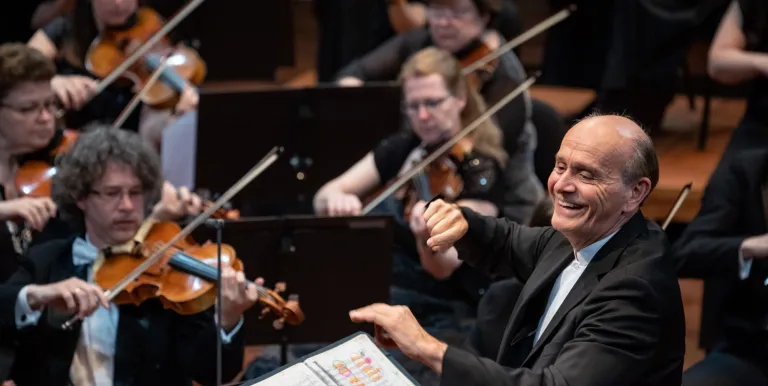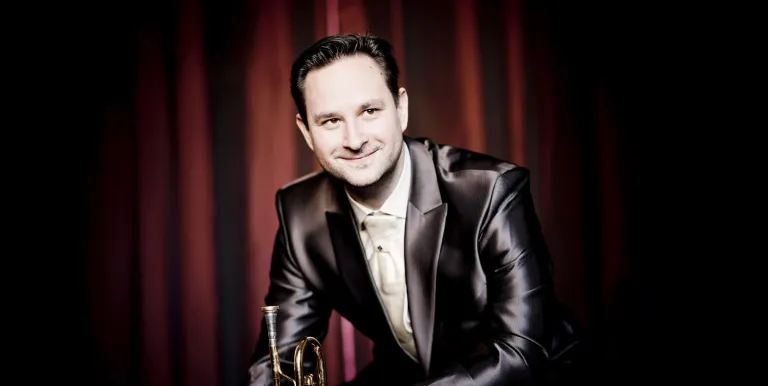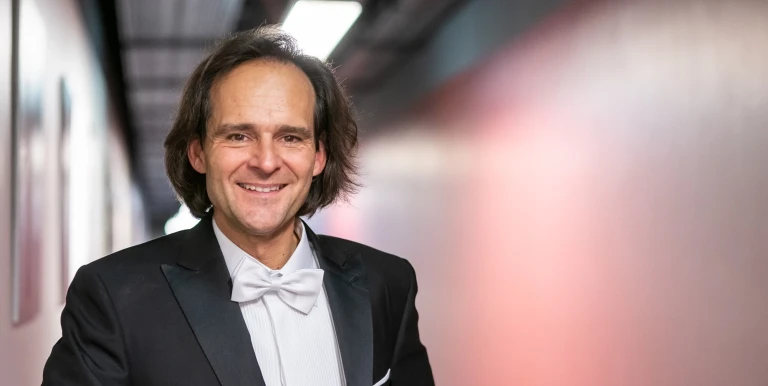one interval
Conductor:
Featuring:
Creators:
Babits
Esti kérdés (‘Evening Question')
Schumann
Genoveva Overture, Op. 81
Saint-Saëns
Havanaise, Op. 83
Saint-Saëns
Introduction and rondo capriccioso, Op. 28
Babits
Három angyal (‘Three Angels')
Mahler
Symphony No. 4 in G major
Mythology, Mediterranean colours, literature... Schumann's sole opera, Genoveva, which takes a legend from German mythology as its subject, only received a few performances upon its completion, causing the composer another deep fit of depression. Not unlike the opera's sombre overture, which oddly enough was written long before the libretto and was already being performed at numerous concerts across Europe in its own time.
The exoticism of Mediterranean and Cuban rhythms exerted a stronger influence on the French composers of the late Romantic period than anything else. The first musicians to perform the two popular Saint-Saëns violin pieces with orchestral accompaniment, Havanaise and the Introduction and rondo capriccioso, as well as the most authentic interpreters of the works, were the Cuban Rafael Díaz Albertini and the Spaniard Pablo de Sarasate. Continuing this sunny atmosphere will be Mahler's Fourth Symphony, his most serene and most frequently performed composition in the genre. If his first three symphonies addressed serious existential questions and the existence of God, then the fourth represents life in heaven, as seen through the eyes of a child. Its origin and the key to understanding it lie in Mahler's longstanding love for the collection of folk texts Des Knaben Wunderhorn (‘The Boy's Magic Horn'); we can observe in it a spiritual kinship with the ingenuous romance of an earlier era, one full of the innocent joys of spring, flowers and birds, and a world free from all cares except the eternal worry of whether one‘s love is reciprocated...
Forming an integral part of the concerts held as part of the INZERT series held by Concerto Budapest in conjunction with the Örkény Theatre during the 2023/24 season will be texts performed by members of the company that are related to the musical works in the programmes in terms of content, mood and/or evoking the spirit of the times. The 27 October performance features Anikó Für.
Presented by: Concerto Budapest
-
We wish to inform you that in the event that Müpa Budapest's underground garage and outdoor car park are operating at full capacity, it is advisable to plan for increased waiting times when you arrive. In order to avoid this, we recommend that you depart for our events in time, so that you you can find the ideal parking spot quickly and smoothly and arrive for our performance in comfort. The Müpa Budapest underground garage gates will be operated by an automatic number plate recognition system. Parking is free of charge for visitors with tickets to any of our paid performances on that given day. The detailed parking policy of Müpa Budapest is available here.










